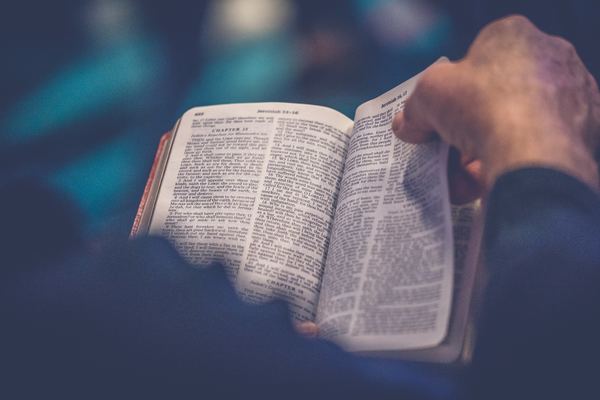Is Jeremiah 29:11 For Me?

My devotion this morning took me through several chapters of Jeremiah, where I read the very popular verse that has been plastered on posters, printed on t-shirts, and posted on social media to the extent it has become somewhat cliché:
“For I know the plans I have for you, declares the LORD, plans for welfare and not for evil, to give you a future and a hope.” (Jeremiah 29:11)
If you’ve faced a big decision or gone through a difficult time, you may have asked yourself, “Does this apply to me?” To answer that question, consider three important facts about the Bible.
1. All Scripture is profitable.
In 2 Timothy 3:16 the Apostle Paul, by inspiration of the Holy Spirit, wrote: “All Scripture is breathed out by God and profitable for teaching, for reproof, for correction, and for training in righteousness.” So, when it comes to Jeremiah 29:11, just as in every verse of the Bible, there is profit for you and me. However, we often miss that profit through faulty interpretation. We need to remember that the goal of interpretation is to discover the author’s intent. It’s not what you or I think it means; the correct interpretation is what the writer intended to say. Once you’ve figured that out, you can properly apply the text.
2. Every Scripture has a context.
I’m afraid many have ripped Jeremiah 29:11 completely out of its context. People treat the verse like some kind of pious platitude to fit their situation or to find in it some kind of emotional comfort. Many misappropriate this text as an affirmation of their own plans, dreams, or life’s blessings. Some erroneously take it to mean that no matter what I do, God has secured a great future for me. Telling yourself you’ve got a bright future because of this verse is horribly misguided. If that’s you, go back and check out the context.
As Russell Moore said, “The Book of Jeremiah is all about God disrupting his people’s plans and upending his people’s dreams.” Jeremiah is telling the Jews exiled in Babylon to settle there and get ready for the long haul because they would remain in Babylon for 70 years. At the same time, people back home in Jerusalem were being told by lying prophets that within two years everything would be back to normal. Verse 11 is directed to the Jews in exile and is a promise that, after 70 years, the Lord would fulfill his promise to bring them back to the land. Remember, this verse isn’t about your plan, but God’s plan. It isn’t about your future, but Israel’s future, which, by the way, was fulfilled just as He promised with the Jewish people returning to their homeland.
Remember, this verse isn’t about your plan, but God’s plan. It isn’t about your future, but Israel’s future.
3. All Scripture reveals Jesus.
So how do you answer the question, “Does Jeremiah 29:11 apply to me?” I would say yes it does—and no it doesn’t. No, it’s not about you unless you interpret the verse in light of its context. Yes, it is for you because it reminds us that God is faithful to his Word and will keep every promise. In Jeremiah 29:11, we see our Savior and remember that “all the promises of God find their Yes in him. That is why it is through him that we utter our Amen to God for his glory.” (2 Corinthians 1:20)
God’s plan was to restore Israel to the land and through them bring Jesus into the world. God’s plan for you is also found in Christ—and that may not align with your plans, comfort or success. As Christians, we understand that God’s plan for us in this life may involve pain and suffering; that God’s timing may not fit our schedules, but that in Christ all things work together for our good. (Romans 8:28)
* * *
As I pondered the verse this morning, I was reminded that like the Jews of that day, we are living in exile from our homeland. The context reminds us to live in this world in the same way Jeremiah counseled his own people in verse 7, to “seek the welfare of the city where I have sent you into exile, and pray to the LORD on its behalf, for in its welfare you will find your welfare.” As believers we are to seek the good of all men and live to make this world a better place so that we might “lead a peaceful and quiet life, godly and dignified in every way.” (1 Timothy 2:2)
God has indeed given us a future and a hope in Jesus Christ. But remember, Jeremiah 29:11 is no guarantee that there won’t be hard times. Don’t turn the verse into some kind of mantra for the power of positive thinking. We must be careful about taking verses out of context and misapplying God’s Word. Always seek to understand the author’s intent, who is being addressed, and how the passage reveals Jesus.